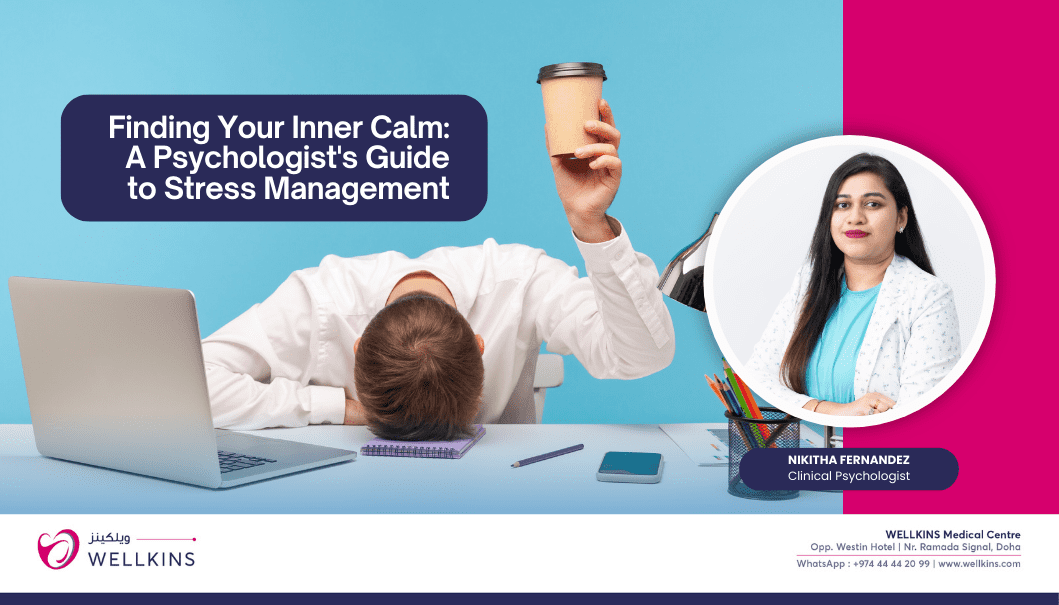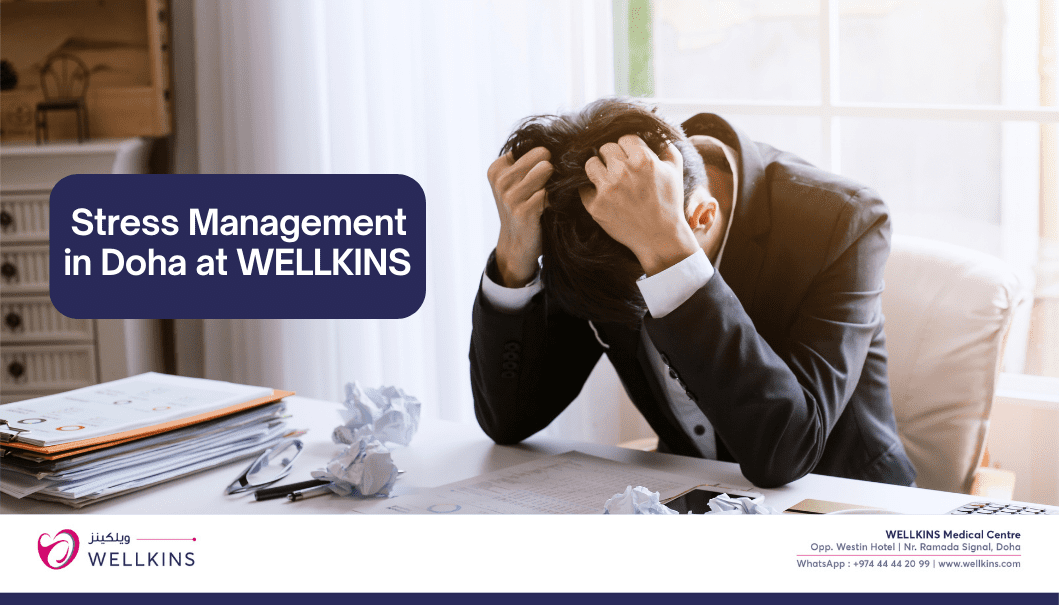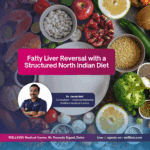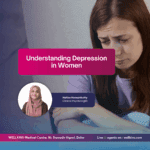Author: NIKITHA FERNANDEZ (Clinical Psychologist – WELLKINS Medical Centre)
Stress is a universal human experience that can affect anyone, regardless of age, background, or circumstances. It’s a natural response to the demands and pressures of modern life, and it can have a profound impact on both physical and mental health.
Stress is an unavoidable part of life, affecting individuals in different ways depending on their circumstances, personality, and coping mechanisms. While some stress can be motivating (eustress), excessive or chronic stress can lead to serious mental and physical health issues, including anxiety, depression, high blood pressure, and burnout.
Managing stress effectively requires a combination of self-help strategies and professional support. Counselling plays a crucial role in helping individuals understand, process, and manage stress in healthy ways. This article explores stress management techniques and how counselling can provide essential support.
Understanding Stress: Causes and Effects
Stress arises when individuals perceive that the demands placed on them exceed their ability to cope. Common stressors include:
- Work-related pressures (tight deadlines, job insecurity)
- Personal relationships (conflicts, family issues)
- Financial difficulties
- Health concerns (chronic illness, injuries)
- Life transitions (moving, divorce, loss of a loved one)
Physical and Psychological Effects of Stress
- Physical Symptoms: Headaches, fatigue, muscle tension, sleep disturbances, weakened immune system.
- Emotional Symptoms: Irritability, anxiety, depression, mood swings.
- Behavioral Symptoms: Overeating or loss of appetite, social withdrawal, procrastination, substance abuse.
Left unmanaged, chronic stress can contribute to long-term health problems, making early intervention essential.
Managing stress effectively requires a combination of self-help strategies and professional support. Counselling plays a crucial role in helping individuals understand, process, and manage stress in healthy ways.
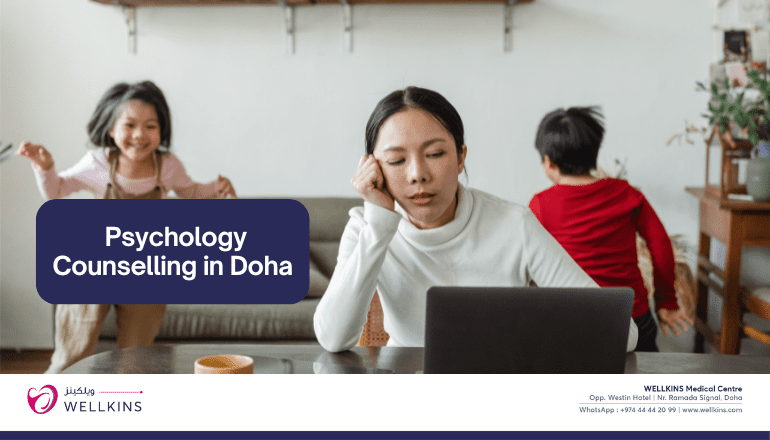
How Counselling Helps in Stress Management
Counselling provides a safe, non-judgmental space for individuals to explore their stressors, understand their emotional responses, and develop effective coping strategies. Here’s how professional counselling can assist in stress management:
1. Identifying Stress Triggers
A counsellor helps individuals recognize the root causes of their stress, whether they stem from external pressures (work, relationships) or internal factors (perfectionism, negative self-talk).
2. Developing Healthy Coping Mechanisms
Rather than resorting to unhealthy habits (like avoidance or substance use), counselling teaches:
- Cognitive Behavioral Therapy (CBT): Challenges negative thought patterns and replaces them with realistic, positive ones.
- Mindfulness & Relaxation Techniques: Breathing exercises, meditation, and progressive muscle relaxation to reduce tension.
- Problem-Solving Skills: Breaking overwhelming issues into manageable steps.
3. Improving Emotional Regulation
Counselling helps individuals process emotions in a constructive way, preventing emotional outbursts or prolonged distress. Techniques such as emotional regulation training and stress inoculation therapy can build resilience.
4. Enhancing Communication & Boundaries
Many stressors arise from interpersonal conflicts. Counselling improves communication skills, helping individuals set healthy boundaries in relationships and workplaces.
5. Preventing Burnout & Promoting Self-Care
Therapists guide clients in prioritizing self-care, work-life balance, and stress prevention strategies to avoid burnout.
Self-Help Strategies to Complement Counselling
While counselling is highly effective, combining it with personal stress management techniques enhances results. Some useful strategies include:
1. Physical Activity
Regular exercise (yoga, walking, gym) reduces cortisol levels and boosts endorphins.
2. Balanced Nutrition
A diet rich in whole foods (fruits, vegetables, lean proteins) supports brain health and stress resilience.
3. Sleep Hygiene
Quality sleep restores the body and mind—aim for 7-9 hours per night.
4. Social Support
Connecting with friends, family, or support groups provides emotional relief.
5. Time Management
Prioritizing tasks, delegating, and taking breaks can prevent overwhelm.
When to Seek Professional Help
While some stress is normal, consider counselling if you experience:
- Persistent anxiety or depression
- Difficulty functioning at work or in relationships
- Reliance on alcohol, drugs, or other unhealthy coping mechanisms
- Physical symptoms (chronic pain, insomnia, digestive issues) linked to stress
Stress is a natural response to life’s challenges, but when it becomes overwhelming, professional counselling can provide the tools needed to manage it effectively. Through therapy, individuals gain insight into their stressors, develop healthier coping mechanisms, and improve their overall well-being.
If stress is impacting your quality of life, seeking help from a qualified counsellor can be a transformative step toward a calmer, more balanced future.
Read more: https://wellkins.com/mentalhealth
Disclaimer: This blog is for informational purposes only and should not replace professional medical advice.


